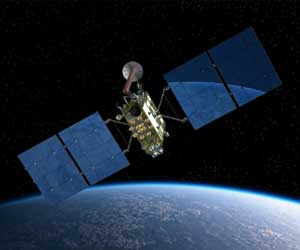GPS is changing the way companies do business, and commercial and residential cleaning establishments are no exception. From more efficient routing to more accurate pricing and payroll, GPS might very well be the cleaning industry’s “must have” technology
Global Positioning Systems, also known as GPS, are changing the way the world does business. From simple, free apps that can keep track of individual employee smart phones to sophisticated systems that allow companies to track and interact with their drivers and fleet in real time, GPS offers a big return for a reasonable price. Before exploring how to integrate GPS into your cleaning business, let’s take a closer look at how this technology works and its numerous benefits.
GPS BASICS
GPS technology works by sending location signals from a smartphone or GPS tracking system installed on a vehicle to and from a GPS satellite. This information is then communicated via cell phone or over a satellite communications network. Software that is part of GPS system interprets this data, which can then be viewed on a computer or a smartphone back at headquarters. The accuracy of the tracking information provided by GPS systems can be impressive, usually within a few yards of the vehicle’s actual location.
There are two main types of GPS systems available to cleaning companies. The first are free or inexpensive GPS apps for smartphones. Not all GPS apps are created equal, so it’s worth doing a bit of research. This article from USA Today reviews some of the top GPS apps in the iPhone store. Most of the apps mentioned are also available on Android phones as well.
The second type of GPS system involves mounting a device on each of your vehicles. This hardware is then synced with tracking software that can be viewed on a smartphone or computer back at headquarters. If you search for “GPS fleet tracking,” a long list of possible vendors will appear. Again, not all of these systems are created equal and prices can vary, so do your homework before making a purchase. The features and prices of some of the top fleet tracking brands are compared in this product review and checklist by TopTenREVIEWS.
While the cheapest option might be the free smartphone apps, the business owners we interviewed for this article made several points about the difference between smartphone apps and installed fleet tracking systems:
• Installed fleet tracking systems allow you to talk to your drivers and so are a bit safer than apps that require drivers to look at screens for guidance.
• Most of the free navigational GPS apps aren’t integrated with the type of sophisticated reporting software provided by the GPS fleet tracking systems.
• If it is important for your company to track the location of your cars 24/7 (perhaps because employees take the cars home), consider purchasing an installed system as most smartphone apps are not designed for this type of monitoring.
• If you make an investment in the fleet systems, you don’t always need the latest and greatest model with all the bells and whistles. You just need the basics to enjoy the operational benefits of this technology.
KEY BENEFITS OF GPS
In order for any cleaning job to be a true “success” for both client and company, a number of things have to come out well – profitability based on accurate pricing, customer satisfaction that leads to loyalty, and efficient scheduling of human and physical resources to make sure multiple jobs managed simultaneously to increase revenue. Believe it or not, GPS can have a positive impact in all of these key areas of operation.
Accurate Pricing
“GPS enables us to be more accurate in pricing our services,” says Matt Ricketts, president and CEO of Better Life Maids in St. Louis, Missouri. “On first visits, we set a do-not-exceed price, which we won’t go over without the customer’s permission. But because GPS provides precise in/out times, we can sometimes offer a discount when in/out times are lower than initially expected. It also makes it easy to settle disputes with a client. You have accurate information to give a client. By having the GPS data you don’t have to guess.”
Accountability
“The accountability factor is what I love,” says Ed Wright, CEO of Spouses Cleaning Houses in Annapolis, Maryland. He has been using GPS for three years and has become a huge advocate of the technology. “We know where everybody is at any given time and we can keep our customers informed in a much more accurate way with regard to estimated time of arrival, for example.” Wright said they didn’t tell their technicians that they were tracking the vehicles for the first four days, and were surprised by what they saw.
“We saw a team take twenty-five minutes to drive to a house that should have taken seven minutes. Some employees were taking stops for sandwiches without letting us know. We pay our employees for drive time. Now they call in if they’re going to make an unscheduled stop. It makes them aware and accountable.” The time tracking aspects of GPS technology are especially important for cleaning companies that pay their employees on an hourly basis and factor in drive time to those rates. The precision of the in/out tracking for jobs and the drive time in between are a great tool for verifying payroll.
Time and Cost Efficiencies
![]() When routes are more direct and employees aren’t getting lost or sidetracked on the way to a job, the savings in time, fuel and lost business start to add up quickly. The pricing of jobs and the verification of payroll become much more accurate and verifiable processes. Owners who use GPS say the savings quickly pay for the investment in the technology. “We’ve seen a lot of savings on gas,” says Wright. “GPS shows us the best routes for organizing the jobs for the day. We can also compare routes using the replay tab to verify which route is most efficient.”
When routes are more direct and employees aren’t getting lost or sidetracked on the way to a job, the savings in time, fuel and lost business start to add up quickly. The pricing of jobs and the verification of payroll become much more accurate and verifiable processes. Owners who use GPS say the savings quickly pay for the investment in the technology. “We’ve seen a lot of savings on gas,” says Wright. “GPS shows us the best routes for organizing the jobs for the day. We can also compare routes using the replay tab to verify which route is most efficient.”
Safety
Not only do cleaning businesses that utilize GPS know where their employees and cars are, but there are safety advantages. Employees don’t get lost as frequently and if they do someone at headquarters can get them back on track quickly. Speeding alerts are sent, which are a great training tool for new employees. Owners note that there are also after hours and weekend driving alerts so company cars are not being used without permission. Some GPS systems also send maintenance alerts which will tell owners when it’s time for such things as oil changes. Finally, who wants to steal a vehicle with GPS?
Marketing Benefits
GPS technology can give companies a competitive edge in the cleaning marketplace. “GPS is a differentiator when you’re talking to clients,” says Ricketts. “It shows that your company is proactive and concerned with accuracy and staying informed about the job your employees are doing.”
GETTING STARTED WITH GPS
So you’ve considered the benefits and you want to integrate GPS technology into your cleaning business. Where should you begin? The best way to start is by listing the features you’d like to have in your system and assessing your budget, including monthly and other recurring costs.
Cost
As we’ve mentioned, your options range from free smartphone apps with limited features to sophisticated fully integrated GPS systems with all the bells and whistles. There are subscription based apps available. For these, you’ll have to consider initial installation fees of the hardware onto your vehicles as well as monthly subscription fees that support the software side of these systems. The hardware can cost anywhere from around $50 to about $200 per vehicle. Some come with installation kits; others require expert installation, which is a one-time fee. Monthly subscriptions start around $19.00 a month and go up to around $50.00 depending on the sophistication of the system. Also, If you’re integrating employee mobile devices such as smartphones or tablets into your GPS system, you’ll want to consider whether to purchase those devices or not. Ricketts and Wright both own all the smartphones that their employees use on the job. “Make a three-year commitment to your technology,” Ricketts recommends. “If you take care of the hardware, you can get four or five years out of it. You can also get used technology to keep costs down.”
Feature Set
It’s important to know what your goals are with regard to GPS technology. Is this just a device to help your employees get to your clients more efficiently? Or do you want other features integrated into your tracking system, like the ability for your employees to use their smartphones to check in and out of a job? Is it important that you can talk to your employees through your GPS system so you can provide verbal directions and instructions rather than having them look at a map on a screen? Is learning about gas efficiency through route comparisons important to you? Do you require email and text alerts for certain notifications? How important is technical support and service to you? Consider what you expect to get out of this technology before you decide upon a system.
GPS systems continue to evolve as the business marketplace embraces this useful technology and finds new and innovative ways to integrate it into their daily workflows. Commercial and residential cleaning companies are no exception. “There are still things we underuse with GPS,” says Wright. “But every time they improve the technology they give us more capabilities. We want to maximize the software to the fullest in the future. Everyone loves this technology once they get it. One of my colleagues thought I was crazy to make the investment. Six months later, after seeing what it had done for my business, he went out and made the investment himself. Now he loves it.”






